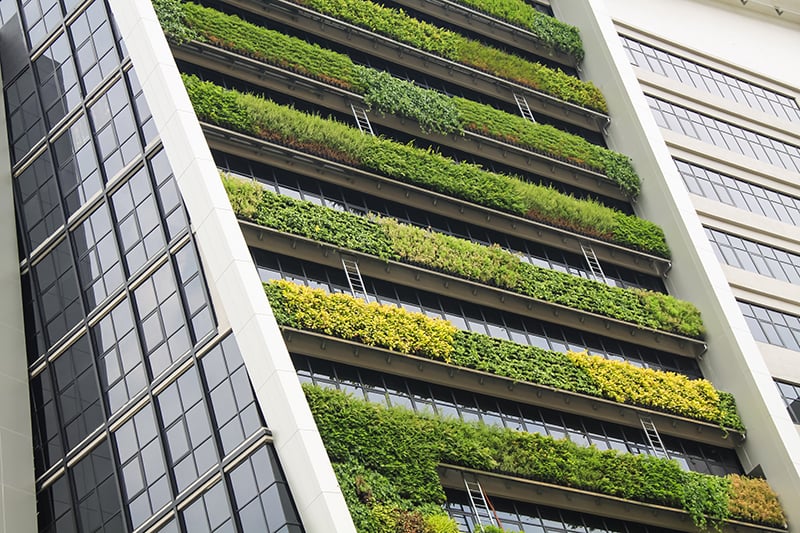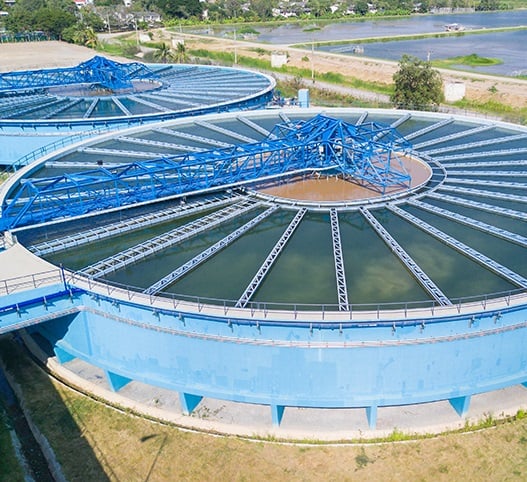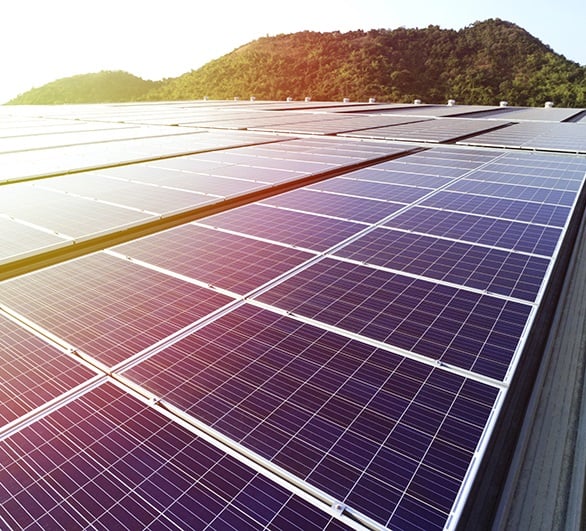With the dawn of industrialization, our dependence on fossil fuels (coal, petroleum, oil, and natural gas) for energy needs have been constantly increasing.
Fossil fuels are basically non-renewable resources, i.e, they are not naturally replenished on a human timescale.
Due to the increase in fossil fuel prices and associated environmental problems with these fuels, we are now looking back to renewable energy sources, which was the practice few centuries ago.
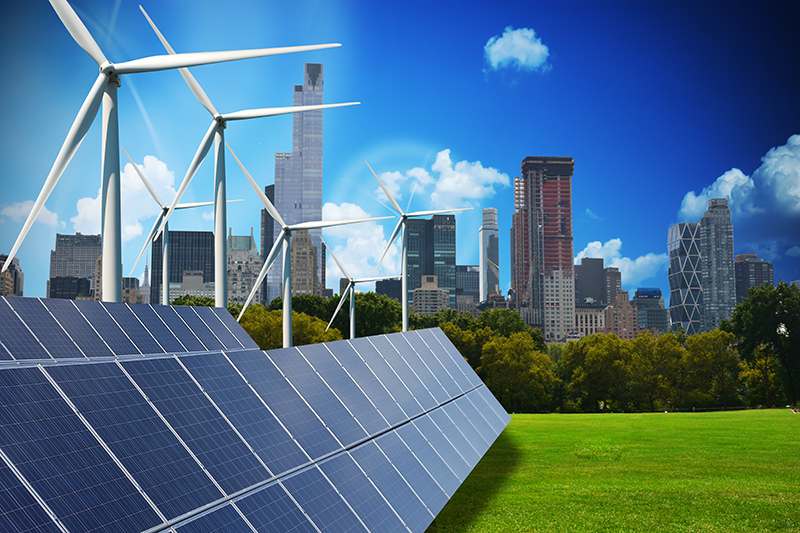
The renewable energy forms such as sunlight, wind, rain, tides, waves, and geothermal heat are renewable natural resources that are depleted at a rate equal to or less than the rate at which it is replenished, and hence renewable energy is considered as an inexhaustible and clean resource.
According to the International Energy Agency’s Renewables 2018, market analysis and forecast report, Renewables will continue their expansion in the next five years, covering 40% of global energy consumption growth.
Their use continues to increase most rapidly in the electricity sector and will account for almost a third of total world electricity generation in 2023.
Solar Energy
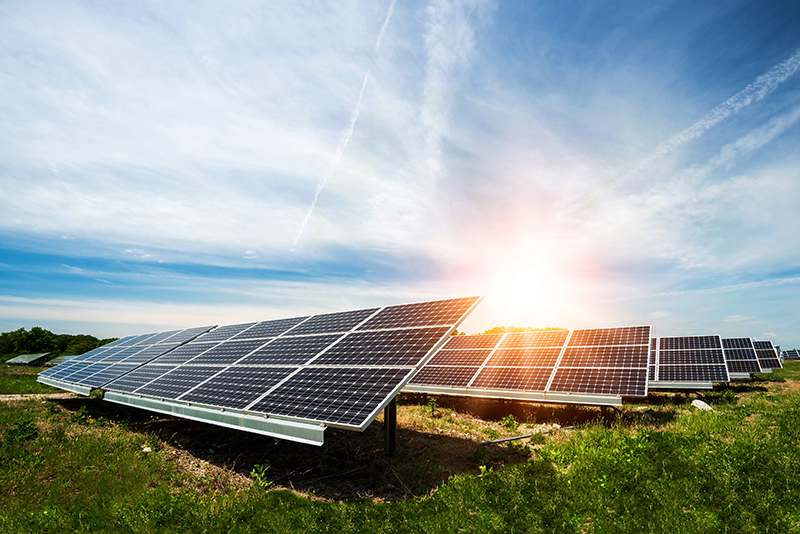
Solar energy refers to the direct conversion of the sun's rays into a usable energy source and the abundance of solar energy makes it a highly appealing and significant source of renewable energy.
Solar energy is classified as either active or passive, depending on how the solar energy is captured, converted and distributed as solar power.
Active solar power is the use of photovoltaic systems to generate solar power for water heating and electricity generation, whereas Passive solar power involves in the design aspects of a building in terms of orientation to the Sun, choosing building materials with favorable thermal mass and designing spaces that naturally circulate air.
Solar cells are mounted in series to form PV modules collect the solar energy and generate electric energy as direct current or stored in batteries in order that it may be used during periods of the day when there is no sunlight.
India’s solar installed capacity reached 26 GW as of 30 September 2018. The 20 GW capacity was initially targeted for 2022 but the government achieved the target four years ahead of schedule, the average current price of solar electricity dropped by 18% below the average price of electricity generated from coal plants.
Wind
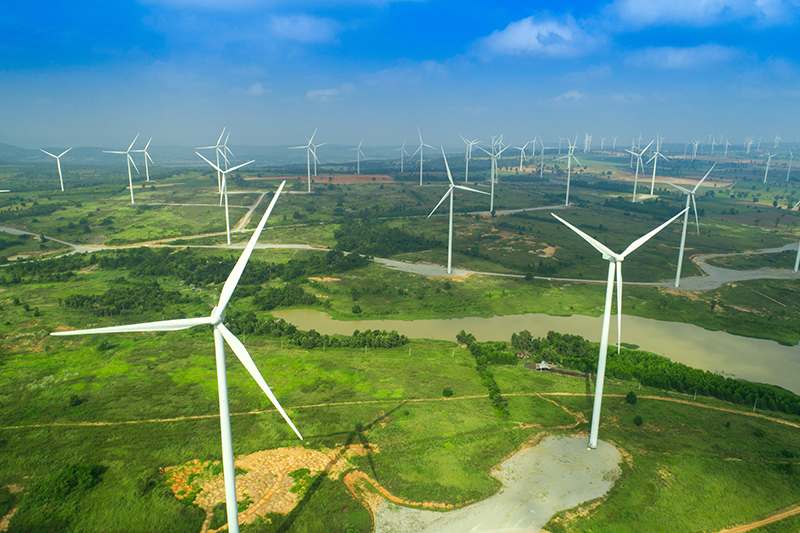
Wind energy is also a form of solar energy, which uses wind power to generate electricity.
The wind blows to turn the blades of the turbine and as it spins, converts the kinetic energy in the wind into mechanical power, which is then converted to electricity by a generator.
This electricity is then sent to a transformer which increases the voltage and sends it to a distribution line. Next, local transformers reduce the voltage and send it to homes or businesses.
Wind power capacity was 34,046 MW as of 31 March 2018, making India the fourth-largest wind power producer in the world.
Hydropower
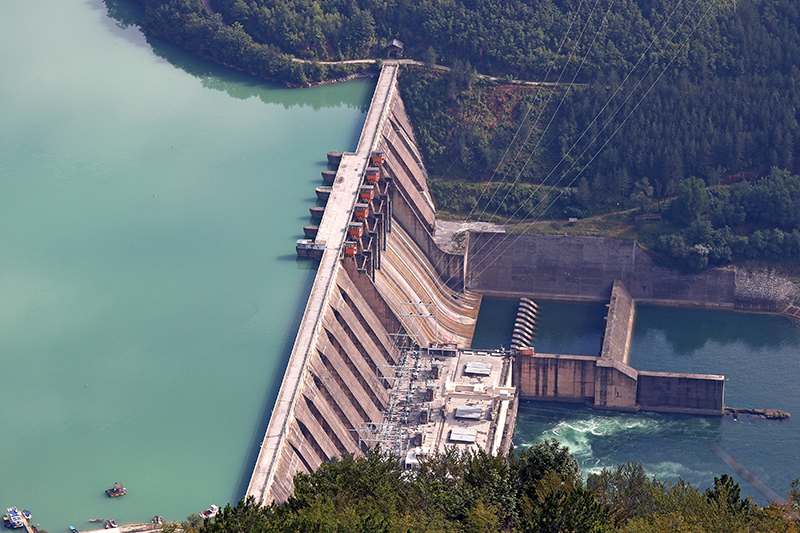
Hydropower is the conversion of energy in flowing water to electricity.
Hydropower is the leading renewable source for electricity generation globally, supplying 71% of all renewable electricity, as per World Energy Council.
Modern hydropower plants produce electricity using turbines and generators, where mechanical energy is created when moving water spins rotors on a turbine.
This turbine is connected to an electromagnetic generator, which produce electricity when the turbine spins.
World Energy Council (WEC), categorize three type of hydro-power stations. They are:
a) run of river, where the electricity is generated through the flow of a river
b) reservoir, where power is generated through the release of stored water and
c) pumped storage, where stored water is recycled by pumping it back up to a higher reservoir in order to be released again.
Hydropower can be used for irrigation, watermills, textile machines, sawmills, and to power various other machines.
India is the 7th largest producer of hydroelectric power in the world and as of 2017, 13.5% of the total utility power generation was by hydroelectric power.
Bioenergy
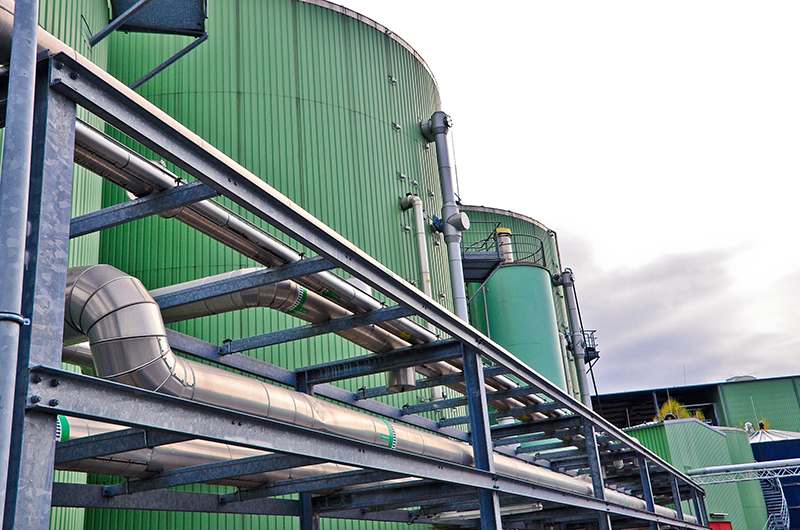
Bio-energy is the energy which is stored in biological matter or “biomass” and is the most widely used renewable energy source.
Biomass commonly refers to organic materials, either directly from plant and animals or indirectly from industrial, commercial, domestic or agricultural products. When these materials are used for their energy content, they are referred to as feed stocks.
Feed stocks can either be crops that are grown specifically for their bio-energy content, known as energy crops, or waste products from industries such as agriculture, food processing or timber production.
The dry and combustible feed stocks are burned to produce heat and steam, that can be used to drive steam turbines to generate electricity.
Wet feed stocks are stocked in sealed tanks, where they create bio methane gas as it decomposes, and can be fermented into ethanol, converted to bio diesel.
Geothermal Energy
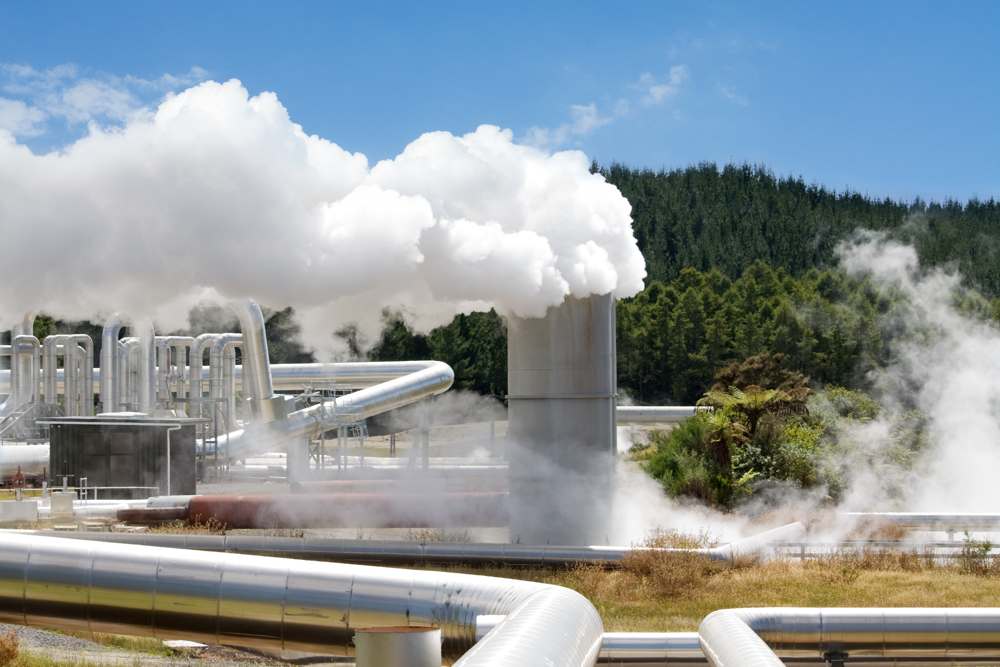
Geothermal energy is clean and sustainable form of energy derived from the immense thermal energy generated and stored in the reservoir of the earth's interior.
It originates from during the original formation of the planet and the slow decay of radioactive particles in earth’s crust.
This heat generated in the form of steam or hot water can be used by geothermal power plants to generate electricity.
Flash steam, dry steam, binary and enhanced geothermal systems (EGS) are the leading geothermal technologies for power generation.
Resources of geothermal energy can range from the shallow ground to few miles beneath the Earth's surface, and even deeper to extremely high temperatures of molten rock called magma.
Geothermal power plants provide stable production output, unaffected by climatic variations, resulting in high capacity factors and making the technology suitable for base load production.
As per IEA, in 2017, global geothermal power generation stood at an estimated 84.8 TWh, while the cumulative capacity reached 14 GW.
Geothermal heat can be used directly, without a power plant or a heat pump, for applications such as space heating and cooling, food preparation, hot spring bathing and spas (balneology), agriculture, aquaculture, greenhouses, snow melting, and industrial processes.
Why Should we Switch to Renewable Energy?
- Positive environmental impact - By using renewable energy instead of fossil fuels, the greenhouse gas emissions can decrease significantly, and help save our planet earth from the clutches of global warming.
- Energy independent - Dependence on domestic renewable energy sources will improve our energy security by reducing the need for foreign oil import and making us energy independent.
- Better economy - A shift to renewable energy industry, will boost our economy in terms of the number of new jobs created and people employed.
Quoting Sir David Attenborough – “Surely we have a responsibility to leave for future generations a planet that is healthy and habitable by all species”
Therefore, shifting to renewable energy will undeniably help us give a sustainable future to the coming generations and let us do our bit towards accomplishing this goal by taking it up as a personal responsibility.
Reference:
https://en.wikipedia.org/wiki/Solar_power_in_India
https://articles.extension.org/pages/26550/introduction-to-renewable-natural-resources
https://openei.org/wiki/Wind_energy
https://www.goodenergy.co.uk/our-energy/our-fuel-mix/what-is-bioenergy/



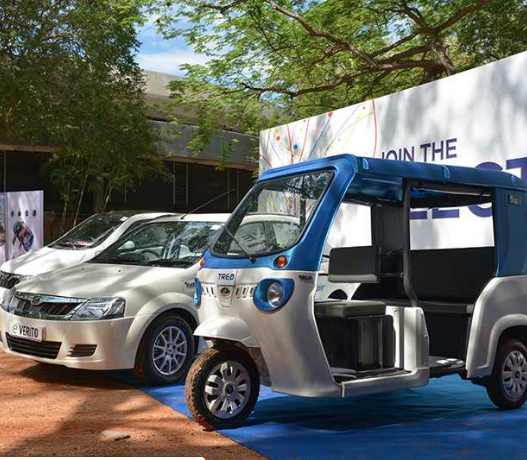


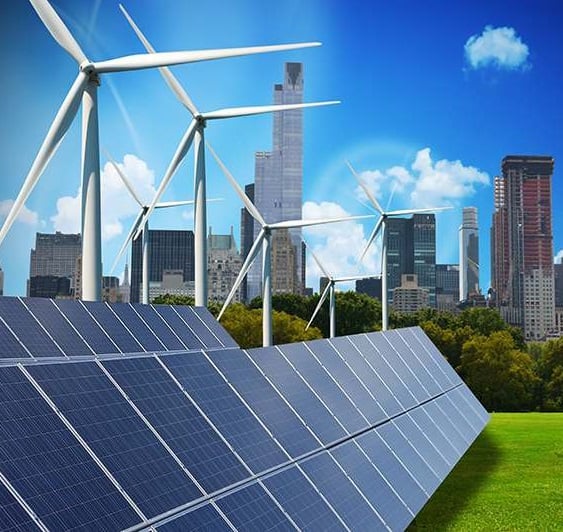
-1.jpg?width=521&name=INDOOR%20AIR%20QUALITY(1)-1.jpg)
